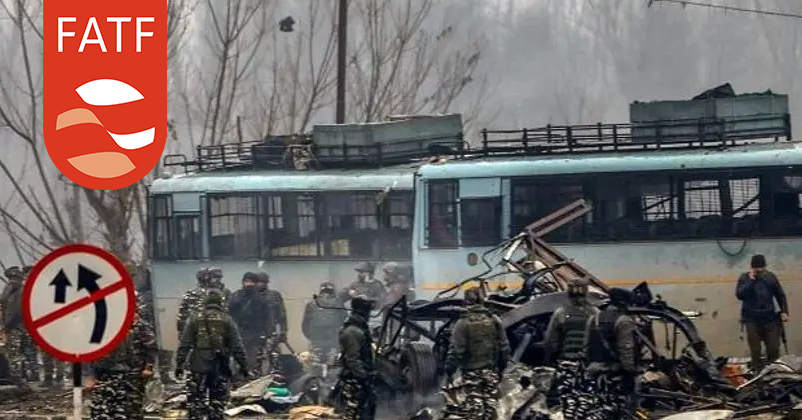FATF flags Pulwama attack: Terrorists exploiting online payments & e-commerce platforms for deadly attacks
Total Views |

The Financial Action Task Force (FATF), a global anti-terror watchdog, has raised serious concerns about how terrorists are misusing online shopping websites, digital payment apps, and VPNs to fund and carry out deadly attacks.
In a new report, FATF directly referred to the 2019 Pulwama terror attack, where 40 CRPF jawans were martyred. It said that explosive materials used in the attack were bought online through Amazon’s EPOM (e-commerce platform). This shows how terrorists are using everyday platforms to plan big attacks without being easily tracked.
FATF also mentioned the 2022 Gorakhnath temple attack in Uttar Pradesh, where the attacker used PayPal to receive and send lakhs of rupees. He even used VPNs to hide his identity and location.
The FATF report has revealed some alarming findings about how terrorists are using digital tools to plan and fund attacks. It states that dangerous materials like aluminium powder, used in making bombs, are being purchased through online stores. Payment apps like PayPal and even crowdfunding platforms are being misused to secretly transfer money across borders. To make things worse, terrorists are using VPNs to hide their identity and location while carrying out these activities, which makes it difficult for authorities to trace them.
FATF has issued a strong warning, stating that many countries are still falling short in tackling digital terror financing. It highlighted that some governments are either directly or indirectly supporting terrorist activities. According to the report, 69% of the countries reviewed do not have proper systems in place to detect, investigate, or punish those involved in funding terrorists.
FATF has called for urgent action to stop the misuse of digital platforms for terror funding. It wants stricter checks on online purchases, especially when it comes to sensitive items that could be used to make explosives. The agency is also pushing for stronger KYC rules on digital payment apps to ensure that money is not moving anonymously. Additionally, it is urging better coordination between countries to track cross-border terror funding. FATF has also asked tech companies and payment platforms to actively work with governments to prevent their services from being used by terrorists.
India has consistently held Pakistan-based terror groups like Jaish-e-Mohammed responsible for attacks such as the 2019 Pulwama bombing. The latest FATF report strengthens India’s stance by highlighting how digital platforms and online tools are being misused to plan and finance such deadly attacks.
(With agency inputs)

